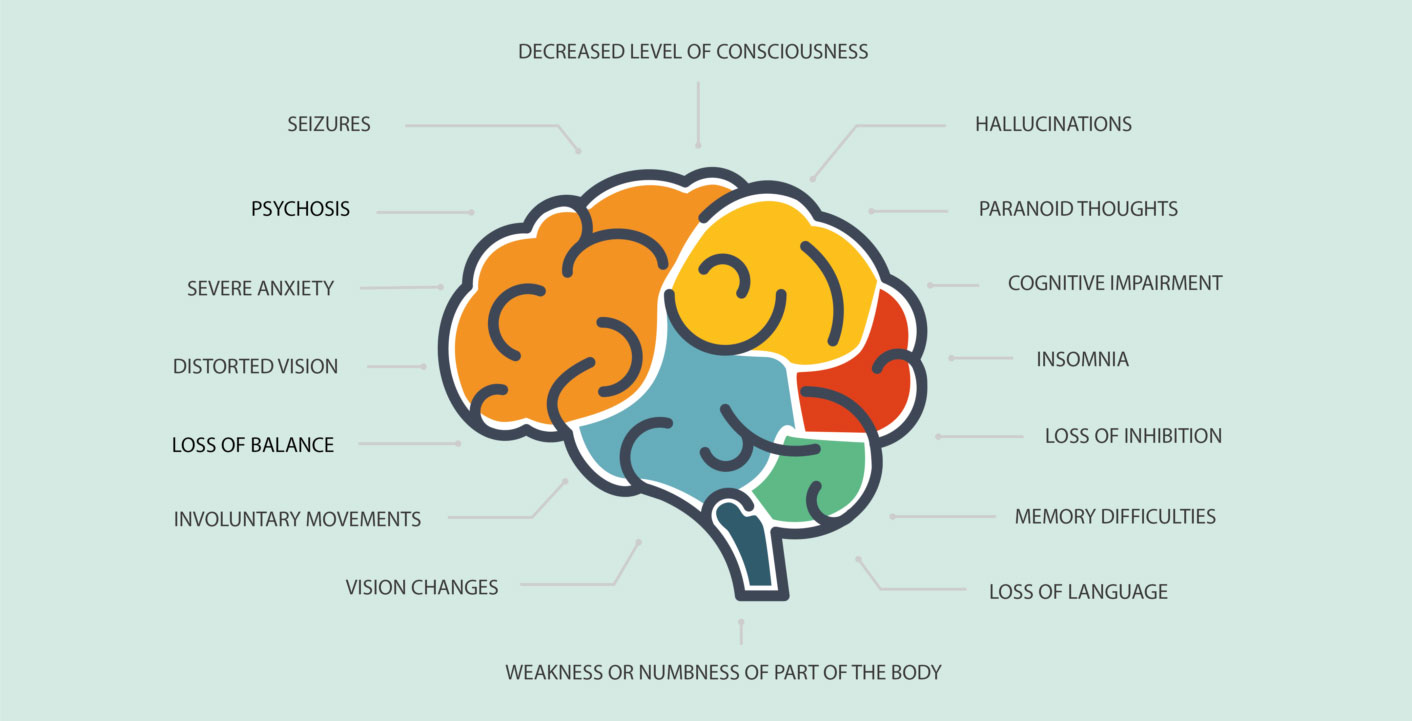Symptoms

Early stage of symptoms
The early stages of autoimmune encephalitis (AE) vary from person to person. Some people rapidly develop new or changing symptoms. For example, a person with AE may start experiencing hallucinations and then develop seizures or problems with their memory. Symptoms may sometimes fluctuate (or alternate between improving and worsening) early in the disease process. During this stage, people with AE are often diagnosed with a more common diagnosis that would cause their symptom(s). For instance, a person with new seizures may be diagnosed with epilepsy and a person who has uncontrolled movements may be diagnosed with a tic disorder or Tourette syndrome.
Many people require numerous visits with different health care providers as symptoms worsen or new symptoms develop before AE is considered and a work-up initiated. While this is frustrating, due to the nature of AE and the overlap in symptoms with many more common conditions, it is often not until a person has developed several symptoms of AE that this rare condition is considered as a possible cause of these changes. Many people in the early stages of the disease will need to stay overnight in hospital for tests and to be treated for severe symptoms.

Neurologic symptoms
- Problems with memory and the process of thinking (also known as cognition)
- Abnormal movements
- Seizures
- Problems with balance or coordination (or ataxia)
- Having trouble speaking
- Changes in vision
- Loss of consciousness or coma
Psychiatric symptoms
- Hallucinations, delusions, or paranoia (or psychosis)
- Aggressive behavior
- Inappropriate sexual behaviors
- Anxiety or panic attacks
- Compulsive behaviors
- Agitation, fear
- Difficulty sleeping
What else can “look like” AE?
There are other conditions that have similar combinations of symptoms to AE. One of the hallmarks of AE is a rapid development of symptoms and progression over time for most causes of AE. However, other neurological and psychiatric conditions may present with a sudden onset of symptoms or quickly worsening symptoms.
Epilepsy, obsessive compulsive disorder, schizophrenia, and tic disorders can have an “overnight” onset, either because milder symptoms were not noticed or because the symptoms truly developed suddenly. Conditions such as anxiety and depression can be associated with “brain fog”, or trouble focusing or remembering things, as well as difficulties with sleep, movement disorders, and behavior changes.
Epilepsy syndromes, especially in children, can present with new seizures with no trigger. Neurodegenerative and metabolic conditions in adults and children can also present with complex symptoms. When people have another diagnosis that can explain their condition, including an unusual presentation of a more common disorder, and they do not meet the proposed criteria for AE, treatment for AE is unlikely to be recommended.